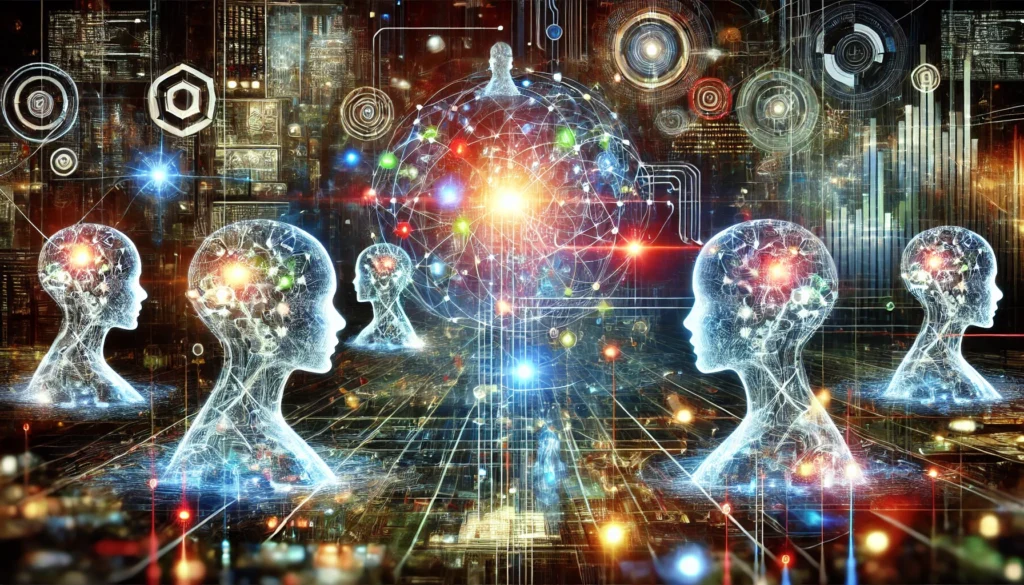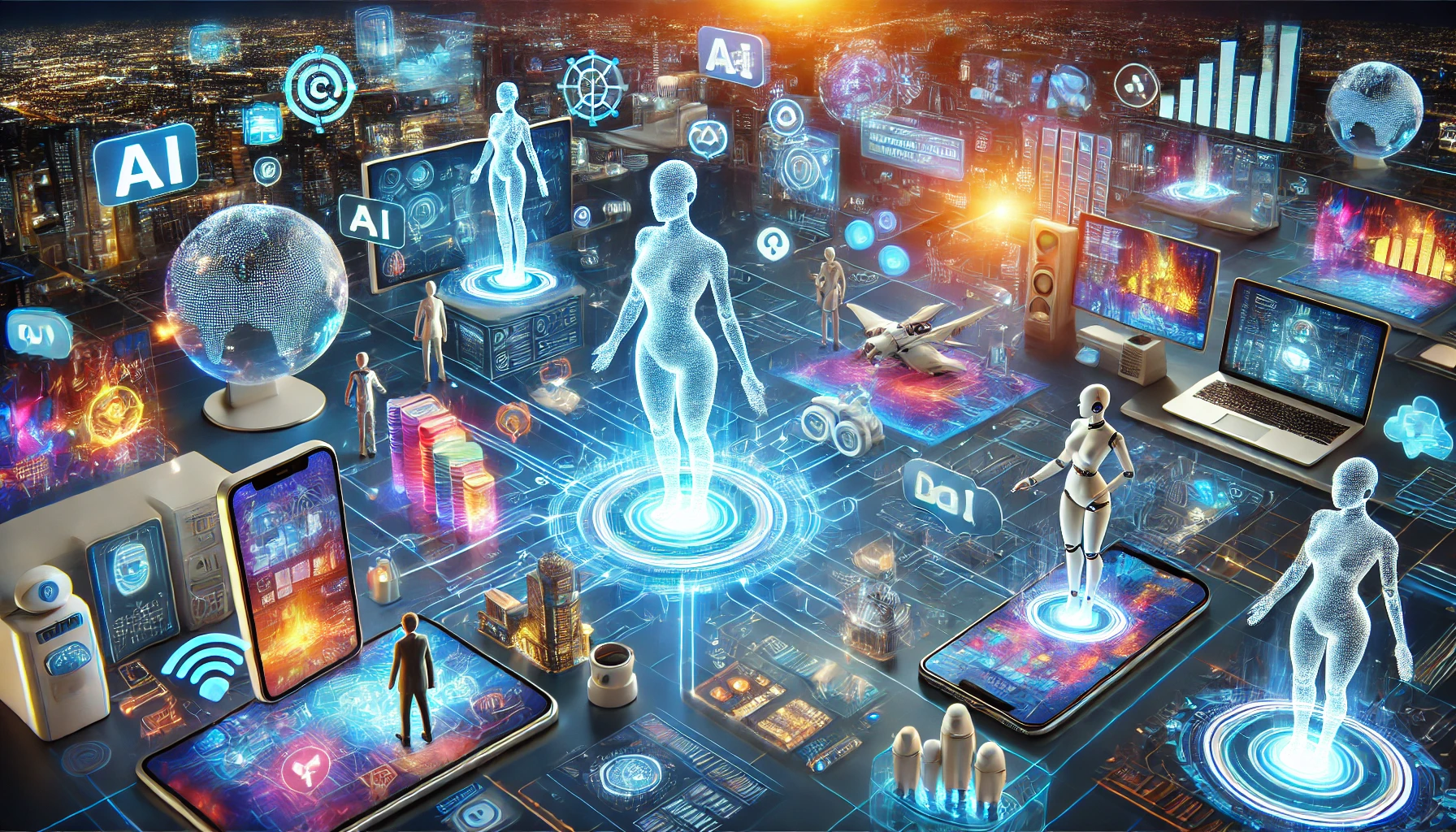Artificial Intelligence (AI) has made transformative strides, offering tools that simplify our lives in unimaginable ways. Among these breakthroughs, AI agents are emerging as a groundbreaking technology poised to revolutionize how tasks are accomplished. But what exactly is an AI agent, and how is it redefining the boundaries of technology?
In this comprehensive exploration, we delve into the concept of AI agents, their workings, applications, and the profound implications they hold for our future.
What Are AI Agents?
At their core, AI agents are autonomous tools that perform tasks on behalf of users. Unlike basic AI systems that require direct input and constant supervision, AI agents are designed to analyze, reason, and execute multi-step actions independently. They thrive on learning from their environment and adapting to user preferences, thus offering a hands-free solution to complex problems.
In essence, an AI agent doesn’t just answer your questions—it takes action. For instance, imagine an AI agent booking your entire vacation, from flights to accommodations, while adjusting for preferences like cost, availability, and even local weather conditions.
How Do AI Agents Work?
AI agents operate based on the principles of perception, decision-making, and action. They are equipped with advanced algorithms to:
- Perceive their environment through inputs such as data, text, or images.
- Decide the best course of action based on pre-defined goals or learned preferences.
- Act autonomously to achieve desired outcomes.
Types of AI Agents
AI agents can be broadly classified based on their decision-making capabilities:
- Simple Reflex Agents: These agents respond to environmental changes in real time. For example, a smart thermostat adjusts the temperature based on current room conditions.
- Goal-Based Agents: These agents operate with a specific objective in mind, such as a robotic vacuum that cleans every accessible corner of your home.
- Utility-Based Agents: The most advanced, utility-based agents weigh risks and benefits, optimize outcomes, and adapt their behavior to suit user preferences.
Applications of AI Agents

The potential uses for AI agents span across numerous industries, fundamentally changing how tasks are performed.
1. Health Care
AI agents in health care assist in automating routine processes such as scheduling, managing patient records, and even diagnosing diseases based on patient data. They improve efficiency and reduce human error, saving time and lives.
2. Business and Administration
From managing emails to booking appointments and handling customer inquiries, AI agents streamline administrative tasks, freeing up valuable human resources for more strategic activities.
3. Robotics and Automation
AI agents are central to robotics, enabling machines to navigate, interact, and complete tasks with precision. For instance, self-driving cars rely on AI agents to process real-time data and make split-second decisions.
4. Gaming
The gaming industry benefits immensely from AI-driven NPCs (Non-Playable Characters) that simulate human-like behavior, creating immersive experiences.
5. E-Commerce
AI agents revolutionize online shopping by offering personalized recommendations, managing inventory, and even automating customer support.
How AI Agents Differ from Traditional AI Systems
While traditional AI systems, like chatbots, respond to inputs within a limited scope, AI agents go further by acting autonomously.
For example:
- A chatbot answers queries but cannot take action beyond the conversation.
- An AI agent, on the other hand, might book a table at a restaurant, send you a calendar invite, and follow up with a reminder.
This distinction marks the evolution from passive AI to active AI—a shift toward technology that not only interacts but also executes.
Challenges and Risks of AI Agents
With great power comes great responsibility. The widespread adoption of AI agents raises critical questions:
1. Privacy Concerns
AI agents often require access to sensitive data such as emails, calendars, or financial records. This dependence introduces significant privacy risks if data is mishandled or breached.
2. Ethical Considerations
AI agents may inadvertently make decisions influenced by biases in their training data. Without proper oversight, these biases can perpetuate inequalities or lead to poor decision-making.
3. Accountability
Who is responsible when an AI agent makes a mistake? Whether it’s a financial error or a healthcare misdiagnosis, assigning accountability remains a gray area.
4. Security Risks
AI agents connected to networks are vulnerable to cyberattacks. If compromised, they could expose sensitive information or execute malicious actions.
The Future of AI Agents
The rise of AI agents signals a shift toward artificial general intelligence (AGI)—systems capable of performing tasks across domains without prior specialization. While current AI agents excel in specific fields, future advancements may enable them to think, reason, and act more like humans, paving the way for unparalleled innovation.
Key players like OpenAI, Google, and Microsoft are investing heavily in developing AI agents that can run autonomously for extended periods, solve problems creatively, and adapt to unforeseen challenges. These advancements hold the promise of reshaping industries and redefining the way we interact with technology.
Should You Embrace AI Agents?
AI agents bring incredible opportunities but also demand caution. To decide whether to incorporate AI agents into your personal or professional life, consider the following:
- Value: Will an AI agent save you time or improve productivity?
- Trust: Are you comfortable sharing sensitive data with an AI system?
- Oversight: Can you ensure human supervision to minimize risks?
As these tools become more integrated into daily life, finding the right balance between automation and human involvement will be critical.
Conclusion
AI agents are not just tools; they are trailblazers of a new era. By autonomously performing complex tasks, they offer unparalleled efficiency and convenience. From simplifying everyday activities to solving global challenges, the potential applications of AI agents are limitless.
However, with great potential comes significant responsibility. As we stand on the brink of this technological revolution, careful consideration of privacy, ethics, and security will determine how successfully we integrate AI agents into society.





